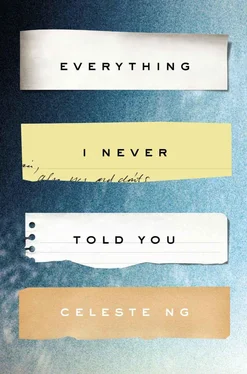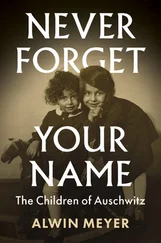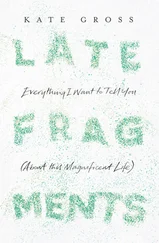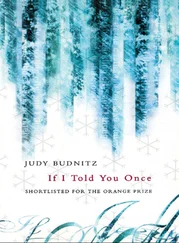If she had not looked up at the ceiling just then, Lydia might have forgiven her brother after all. But something caught her eye — a Rorschach of white above their heads — and a tiny memory ballooned in her mind. They had been quite small. Her mother had taken Hannah to a doctor’s appointment and she and Nath, home alone, had spotted a huge spider crawling just above the window frame. Nath had climbed the sofa and crushed it with their father’s shoe, leaving a black smudge and half a footprint on the ceiling. “Say you did it,” he’d begged, but Lydia had a better idea. She fetched the bottle of Liquid Paper from beside their father’s typewriter and painted over each spot, one by one. Their parents never noticed the dots of white against the cream of the ceiling, and for months afterward, she and Nath would glance up and share a smile.
Now, looking carefully, Lydia could still see the faint tread of their father’s shoe, the bigger splotch where the spider had been. They had been a team. They had stuck together, even in this small, silly thing. She had never expected a time when that would not be true. Morning light splashed across the wall, making shadows and spots of glare. She squinted, trying to distinguish white from off-white.
“Lydia?” Everyone else had been busy, unwrapping gifts: across the room, Nath fed a roll of film into a new camera; a ruby pendant on a gold chain gleamed against her mother’s robe. In front of her, her father held out a package, small and compact and sharp-edged, like a jewel box. “From me. I picked it out myself.” He beamed. Usually James left the Christmas shopping to Marilyn, allowing her to sign each tag Love, Mom and Dad. But he had picked this gift out himself, and he could not wait to bestow it.
A present he picked out himself, Lydia thought, must be something special. At once she forgave her father for not interceding. Beneath this wrapping was something delicate and precious. She imagined a gold necklace like some girls at school wore and never took off, little gold crosses they’d received at their confirmations, or tiny charms that nestled between their collarbones. A necklace from her father would be like that. It would make up for the books from her mother, for all of the past three days. It would be a little reminder that said I love you. You’re perfect just as you are.
She slid her finger under the wrapping paper, and a squat gold and black book fell into her lap. How to Win Friends and Influence People. A bright band of yellow slashed the cover in two. Fundamental Techniques in Handling People. Six Ways of Making People Like You. At the top, in deep red letters: The More You Get Out of This Book, the More You’ll Get Out of Life! James beamed.
“I thought you could use this,” he said. “It’s supposed to — well, help you win friends. Be popular.” His fingers grazed the title on the cover.
Lydia felt her heart in her chest like a pellet of ice, sliding down out of reach. “I have friends, Daddy,” she said, though she knew this was a lie.
Her father’s smile flickered. “Of course you do. I just thought — you know, you’re getting older, and in high school now — people skills are so important. It’ll teach you how to get along with everyone.” His eyes darted from her face to the book. “It’s been around since the thirties. Supposed to be the best on the subject.”
Lydia swallowed, hard.
“It’s great,” she said. “Thanks, Daddy.”
There was no hope for the other presents in her lap, but Lydia opened them anyway. A fluffy Orlon scarf from Nath. A Simon and Garfunkel album from Hannah. Books from her mother, as usual: Women Pioneers in Science. Basic Physiology. “Some things I thought you might be interested in,” Marilyn said, “since you did so well in biology.” She sipped her tea with a slurp that grated all the way down Lydia’s spine. When nothing was left beneath the tree but balled-up wrapping paper and shreds of ribbon, Lydia stacked her gifts carefully, the book from her father on top. A shadow fell over it: her father, standing behind her.
“Don’t you like the book?”
“Sure I like it.”
“I just thought it would be helpful,” he said. “Though you probably know everything about that already.” He pinched her cheek. “How to win friends. I wish—” He stopped, swallowing the words back down: I wish I’d had it when I was your age. Perhaps, he thought, everything would have been different; if he’d known how to handle people, how to make them like him, perhaps he’d have fit in at Lloyd, he’d have charmed Marilyn’s mother, they’d have hired him at Harvard. He’d have gotten more out of life. “I thought you’d like it,” he finished lamely.
Though her father had never mentioned his schooldays, though she had never heard the story of her parents’ marriage or their move to Middlewood, Lydia felt the ache of it all, deep and piercing as a foghorn. More than anything, her father fretted over her being well liked. Over her fitting in. She opened the book in her lap to the first section. Principle 1. Don’t criticize, condemn, or complain.
“I love it,” she said. “Thanks, Daddy.”
James could not miss the edge in her voice, but he brushed it aside. Of course she’s annoyed, he thought, at a present she doesn’t need. Lydia already had plenty of friends; almost every evening she was on the phone with someone, after she’d finished all of her homework. How foolish of him to have bought this book at all. He made a mental note to come up with something better for her next gift.
The truth was this: at thirteen, at her father’s urging, Lydia had called up Pam Saunders. She hadn’t even known Pam’s number and had had to look it up in the book, which lolled on her lap as she ticked the dial around. Aside from the phone in the kitchen, and the one in her father’s study, the only other phone in the house was on the landing, a little window seat halfway up the stairs where her mother kept a few throw pillows and a wilting African violet. Anyone passing by downstairs could overhear. Lydia waited for her father to head into the living room before she dialed the last digit.
“Pam?” she said. “It’s Lydia.”
A pause. She could almost hear Pam’s brow crinkling. “Lydia?”
“Lydia Lee. From school.”
“Oh.” Another pause. “Hi.”
Lydia wormed her finger into the phone cord and tried to think of something to say. “So — what did you think of the geography quiz today?”
“It was okay, I guess.” Pam snapped her gum, a tiny tsk of a sound. “I hate school.”
“Me too,” Lydia said. For the first time, she realized this was true, and saying it emboldened her. “Hey, do you want to go roller-skating on Saturday? I bet my dad would drive us.” A sudden vision of her and Pam, whizzing around the roller rink, giddy and giggling, flashed through her mind. Behind them, in the stands, how delighted her father would be.
“Saturday?” Sharp, startled silence. “Oh, sorry, I can’t. Maybe some other time?” A murmur in the background. “Hey, I gotta go. My sister needs the phone. Bye, Lydia.” And the clunk of the receiver being set back on the hook.
Stunned by how suddenly Pam had hung up, Lydia was still clutching the handset to her ear when her father appeared at the foot of the stairs. At the sight of her on the phone, a lightness crossed his face, like clouds shifting after strong wind. She saw him as he must have looked when he was young, long before she had been born: boyishly hopeful, possibilities turning his eyes into stars. He grinned at her and, on exaggerated tiptoe, headed into the living room.
Lydia, phone still pressed to her cheek, could hardly believe how easy it had been to bring that bright flush of joy to her father. It seemed, at the time, like such a small thing. She remembered this the next time she lifted the receiver and held it to her ear, murmuring, “mm-hmm, mm-hm — she did? ” until her father passed through the front hallway, paused below, smiled, and moved on. As time went by, she would picture the girls she watched from afar and imagine what she’d say if they were truly friends. “Shelley, did you watch Starsky and Hutch last night? Oh my god, Pam, can you believe that English essay — ten pages? Does Mrs. Gregson think we have nothing better to do? Stacey, your new hairdo makes you look exactly like Farrah Fawcett. I wish my hair would do that.” For a while, it remained a small thing, the dial tone humming in her ear like a friend. Now, with the book in her hand, it no longer seemed so small.
Читать дальше












